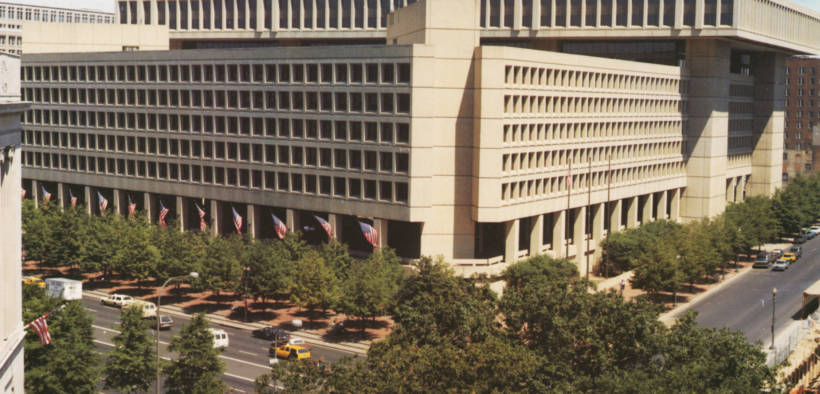White House Proposes $1.75 Billion FBI Building as Part of Coronavirus Stimulus

$1,200 stimulus checks, cuts to unemployment benefits, no eviction moratorium, and a $1.75 billion FBI Building?
Yesterday, the GOP announced their latest coronavirus stimulus package proposal, the HEALS Act, a $1 trillion bill in response to the Democrats’ $3 trillion proposal. Within the bill, the White House snuck in a $1.75 billion handout “for the design and construction of a Washington, DC headquarters facility for the Federal Bureau of Investigation.”
The $1.75 billion price tag appeared to be a surprise to Senate Republicans. Senate Majority Leader Mitch McConnell was confused when asked about the FBI building and later referred questions about the FBI building to the White House.
“Well regarding that proposal, obviously, we had to have an agreement with the administration in order to get started. And they’ll have to answer the question of why they insisted on that provision,” said McConnell.
The HEALS Act also includes a cut in the previous unemployment benefit from $600 a week to $200 a week and another $1,200 check for the same taxpayers as the first round of coronavirus stimulus.
A New FBI HQ Over Housing and Food?
Another prominent feature missing from the Republicans’ HEALS Act is an extension of an eviction moratorium. The Democrat proposal for coronavirus relief included a $100 billion rental assistance program for states and local governments.
Without an extension of the eviction moratorium, many people fear a wave of evictions that could sweep the nation.
“If we fail to act, recovery from the coronavirus pandemic and the looming economic crisis will be impossible,” Democratic House Representative Jesús García told The Hill.
According to the Bureau of Labor Statistics, 11.1% of Americans were still unemployed in June, and the month of July saw a great increase in coronavirus cases and a further disruption to many state economies.
The coronavirus crisis has hit younger and poorer Americans particularly hard. According to the US Census Bureau, a third of Americans between 25 and 39 had little or no confidence in their ability to pay next month’s rent.
36 percent of Americans making under $25,000 said they sometimes or often are not having enough food to eat.
Timing
The timing of the decision from President Donald Trump’s Administration to tack on extra spending for the FBI in the midst of a pandemic and economic depression raised a few eyebrows.
Currently, federal law enforcement is active in suppressing protests and demonstrations in Portland, Oregon, with even an Air Force surveillance plane flying around the area.
Last week, Trump announced another federal law enforcement action, Operation Legend, that has seen federal officers sent into Chicago, St. Louis, and Albuquerque.
In recent weeks, Trump has positioned his reelection campaign and presidency as the crime-stopping presidency. He has promised to send “a surge” of federal agents into a wide range of cities including New York, Philadelphia, Los Angeles, and others.
Since the coronavirus outbreak and subsequent lockdown, in many major American cities, the overall crime rate is down. But the murder rate has held steady, with some experts theorizing violent crime is making a larger proportion of crime due to the usual summer bump in violent crime.
But with coronavirus cases exploding in the United States, antiracist protests continuing in many American cities, President Trump is losing the narrative if presidential polls are to be believed.
And, both Republicans and Democrats have expressed doubts about the proposed FBI building casting doubt over the Republican proposal.
“It doesn’t have to be technically COVID-related. I just don’t know why we’re doing that,” Republican Senator Lindsay Graham said referring to the FBI building.
Democrats will insist the HEROES Act that passed the House two months ago would more adequately address the needs of the country.
Democratic Senator Ron Wyden called the cuts to unemployment “a punch in the gut and a slap in the face” to jobless Americans.







